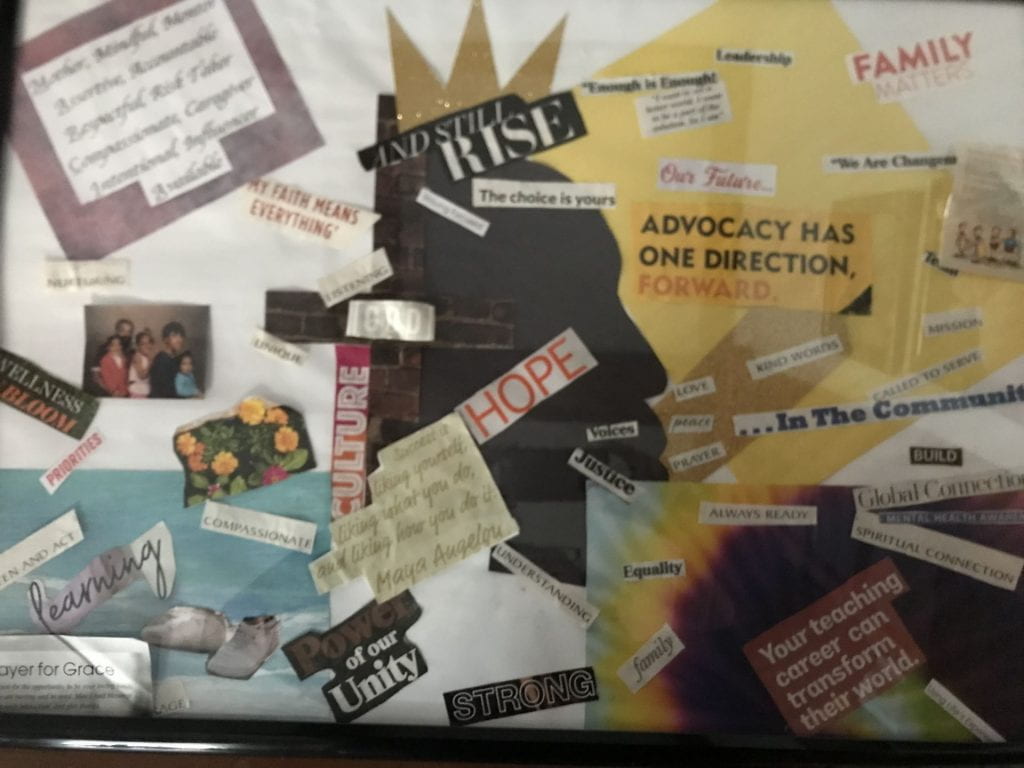After 39 years as an ECE provider, you’d think Marcia Gadson-Harris would have little desire—or need—for more professional development training. And yet, last October she completed Leading for Change, the 14-week professional development program offered through the Massachusetts StrongStart Professional Development Centers that trains program administrators, educators, and family child care providers on how to lead for change and quality improvement in their practice, program, or in the field.

For Gadson-Harris, the question of whether she would participate in the training was never in doubt. “I’m an avid learner,” she says. “I take lots and lots of training and there’s no such thing as too much training. You can never stop learning. That’s what life is all about.”
Gadson-Harris says she was drawn to the course, in part, because of its name. “As soon as I saw the word ‘change’ in the title I was interested,” she says. “I love this work. I love my families. I see the good that takes place. But this field needs to change, and I want to be a part of change for the better. I know things aren’t going to change overnight, but we have to start somewhere, and even small change can make a difference.”
The change that Gadson-Harris wanted to begin with was ameliorating the impact of the pandemic on the children and families she serves. Levels of anxiety and stress have gone way up, she says, and two years in, they need relief.
Nearly all of her children have exhibited signs of increased anxiety, stress, and trauma related to life events that have resulted from the pandemic or made worse by it. “Eight of my 10 children had traumatic experiences during the pandemic,” says Gadson-Harris, referring to divorce and parent illness. “I was dealing with so many behavioral challenges that I couldn’t begin to tell you about,” says Gadson-Harris.
Another child’s parent gave birth to a new baby, which can be stressful to older siblings. But the pandemic worsened these dynamics as the older child’s activities outside the home were further limited to protect the baby from COVID-19, making the child feel even more isolated than they already were.
Gadson-Harris has long been interested in the benefits of social-emotional learning that fosters children’s development of social skills, self-awareness, ability to manage their emotions, empathy for others, and other healthy life skills. So she focused her final project for Leading for Change on creating a social-emotional toolkit for parents and educators to build resilience in the face of stress and anxiety. The toolkit is called A Guiding Hand to H.E.L.P. (Hope, Empowerment, Love, and Partner) and includes tools like feelings wheels, examples of deep breathing and mindfulness activities, and calm down manipulatives such as bubbles and stress balls.
Ultimately, Gadson-Harris wants parents and educators to know that it’s okay to feel tired, grumpy, and sad. But she also wants to offer hope by empowering them to express and resolve those feelings.
“They need to know that this is going to pass,” she says. “They need to ask themselves and their children what’s really going on? How are you feeling? Tell me how you are feeling, rather than me guessing how you’re feeling.”
Leading for Change was developed by the Institute for Early Education Leadership and Innovation at UMass Boston, which also offers the training to early educators in Maryland and California. Adapted from the entrepreneurial leadership curriculum that anchors all of the Leadership Institute’s programs, Leading for Change is taught in the style of a professional learning community (PLC) making it a highly interactive learning environment where participants work with peers to develop their leadership skills. It is taught in two parts with seven sessions each. Participants in Part 1 learn how to lead for change to improve program quality and promote equity in early care and education. Part 2 provides an opportunity for participants to dig deep into a specific area they’d like to change and build a concrete plan to make that change a reality. In addition to the PLC sessions, participants complete an out-of-class-time leadership development activity, and several PLC session discussions are based on short readings or videos to be read or viewed before sessions.
Gadson-Harris credits Leading for Change with helping her feel even more confident and empowered as an educator. “It pushed me to another level,” she says. “It made me see that we’re not alone, educators are not alone. Together we can do this and make change for the better. That seed was already planted with me, but Leading for Change really just gave me the opportunity to grow.”

